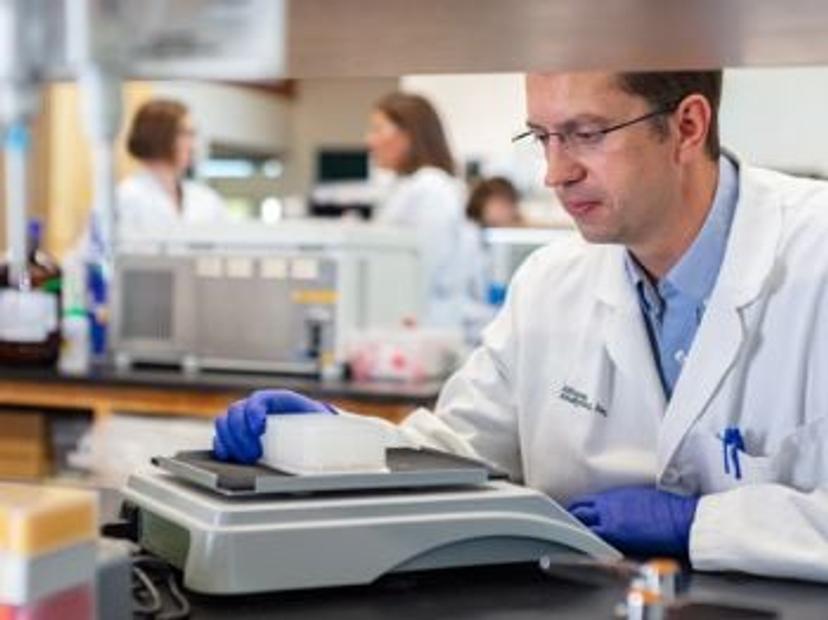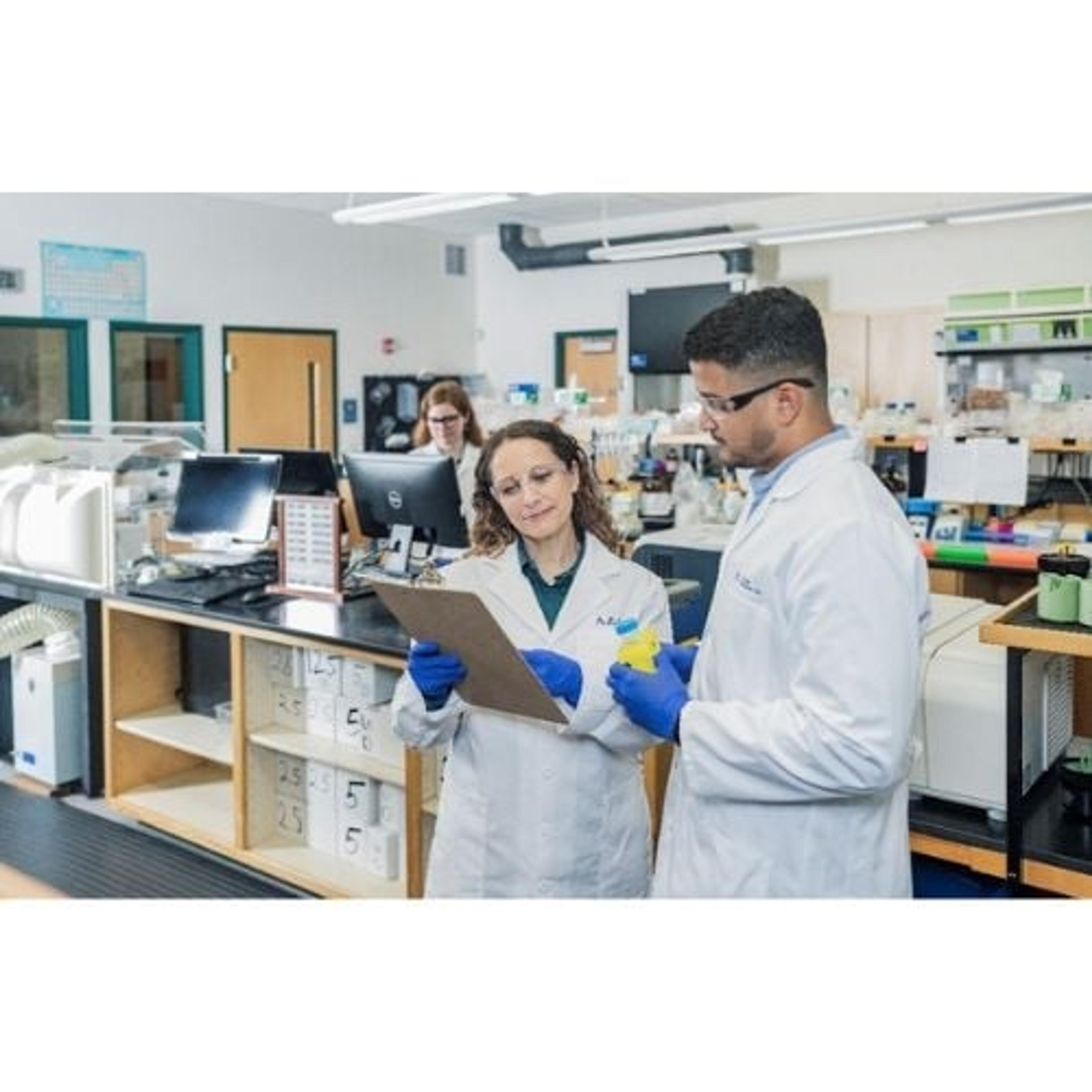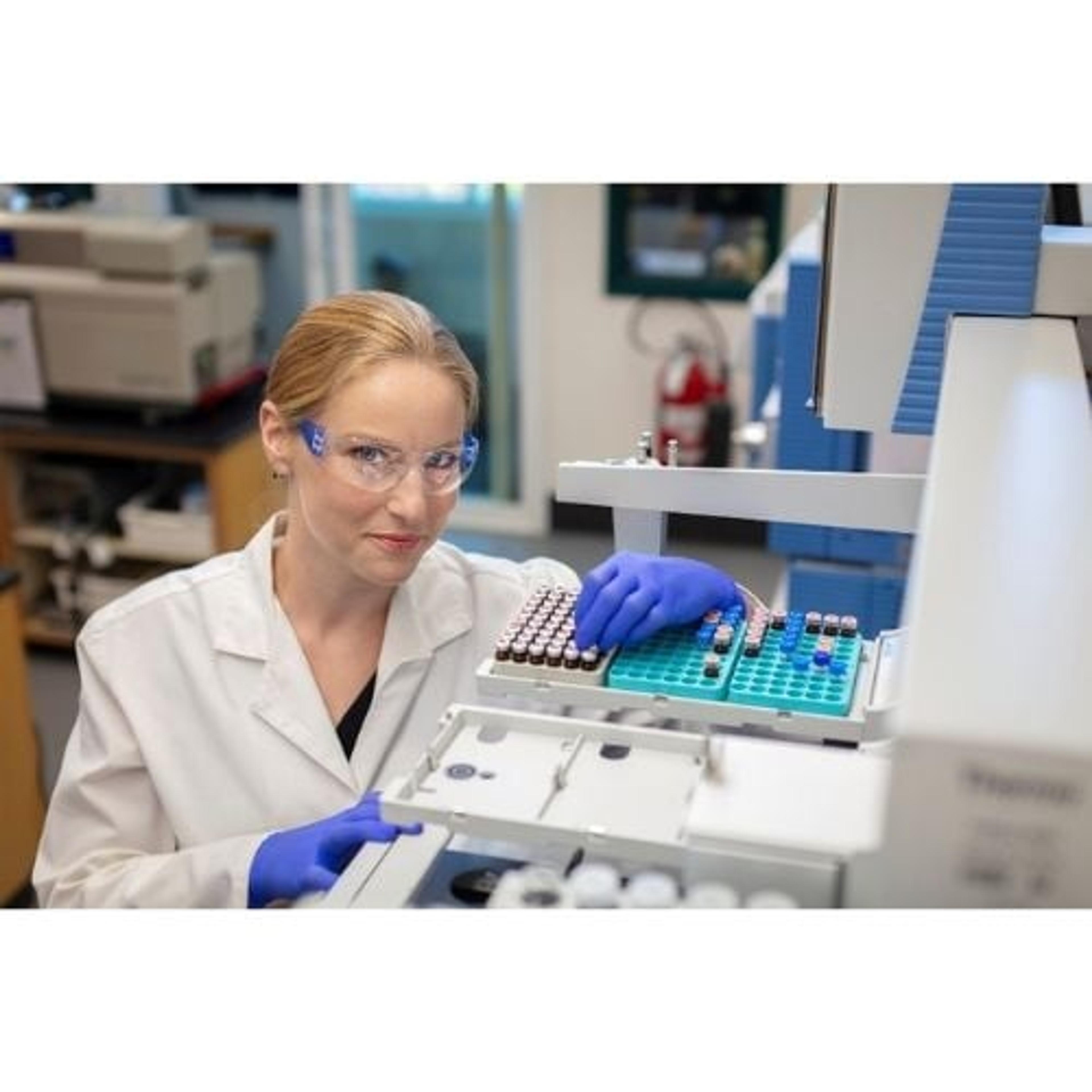Innovative bioanalytical LC-MS/MS techniques overcome biologic quantitation challenges
Learn how Alturas Analytics’ pioneering LC-MS/MS technology can address sensitivity, selectivity, internal standard selection, and sample preparation challenges associated with biologics analysis
25 Oct 2023

Bioanalytical testing is essential throughout the biologic discovery and development process as it enables researchers to evaluate the safety, toxicity and efficacy of new drugs. Liquid chromatography-tandem mass spectrometry (LC-MS/MS) is emerging as a popular technique in the analysis of biologics. While this technique can be accurate and effective, there are some key challenges, including sensitivity, selectivity, internal standard selection, and sample preparation time. These all can affect the reliability of results. Technological advancements aimed at overcoming these challenges have the potential to establish LC-MS/MS as the predominant technique for biologics analysis.
Chad Christianson, Senior Principal Scientist at Alturas Analytics, discusses the importance of biologics, the challenges associated with analysis through LC-MS/MS, and how Alturas Analytics uses innovative techniques to address the most common roadblocks in biologics bioanalysis. Plus, learn about the services Alturas Analytics provides to help streamline and enhance the biologic development workflow and expedite time to market.
The challenges associated with biologic analysis
Biologics, such as monoclonal antibodies (mAbs), enzymes and PEGylated compounds, are large complex molecules that have transformed the landscape of healthcare due to their remarkable therapeutic potential. These drugs are essential as they are able to treat a wide range of challenging and previously untreatable diseases, including autoimmune disorders, cancer, and rare genetic conditions.
“One key advantage of biologics is their specificity. Unlike traditional small-molecule drugs, biologics are designed to precisely target specific biological molecules or pathways in the body. This high degree of specificity often leads to enhanced efficacy and reduced side effects, compared to conventional drugs. For example, mAbs can be engineered to target cancer cells while sparing healthy ones. Additionally, biologics have paved the way for personalized medicine, as they can be tailored to match an individual's unique genetic and molecular profile, optimizing treatment outcomes,” says Christianson.

Bioanalytical assay development is a critical part of the drug discovery and development process, as it allows researchers to test, measure, and characterize the properties of drugs to ensure their efficacy and safety. With the expansion of biologic-based medicines, the industry is adapting and developing new specific, sensitive and robust bioanalytical methods, including the analysis of biologics by LC-MS/MS.
Christianson explains, “This technique involves passing a liquid mixture containing the compounds of interest through a chromatographic column, separating the components based on their chemical properties.” He continues, “Then, in tandem with a mass spectrometer, the separated molecules are ionized, and their mass-to-charge ratios are measured. LC-MS/MS can be used throughout the discovery and development process, helping identify and quantify specific proteins or metabolites associated with diseases, analyze the purity of drug candidates, support pharmacokinetic and pharmacodynamic studies, and assess drug stability.”
However, Christianson emphasizes that analyzing large molecules and biologics using LC-MS/MS presents several challenges that are crucial to consider for accurate and reliable results. These include:
One key advantage of biologics is their specificity. Unlike traditional small-molecule drugs, biologics are designed to precisely target specific biological molecules or pathways in the body.
Chad Christianson Senior Principal Scientist at Alturas Analytics
Sensitivity: Large molecules often exist at lower concentrations in biological samples. This means LC-MS systems have to be sensitive enough to accurately detect even trace amounts of the target molecule.
Selectivity: The digestion of large molecules in biological matrices generates numerous peptides due to the high concentration of proteins present. Many of these endogenous peptides can interfere with the target molecule, affecting the accuracy of quantification. Therefore, LC-MS/MS methods must be highly selective to separate and quantify the target analyte from interfering peptides.
Internal standard selection: Internal standards are compounds with known concentrations that are added to the sample to help with quantification. Choosing an appropriate internal standard is critical for accurate results, however, it is not always easy as they should have similar properties to the target molecule and behave consistently throughout the analytical process.
Sample preparation time: Preparing samples for LC-MS/MS analysis can be time-consuming, particularly for large molecules. Minimizing sample preparation time while maintaining the integrity of the analyte is essential for efficiency in high-throughput studies and to prevent potential degradation or modification of large molecules during sample handling.
Enhancing bioanalysis with innovative LC-MS/MS techniques
Biologics have paved the way for personalized medicine, as they can be tailored to match an individual's unique genetic and molecular profile, optimizing treatment outcomes.
Chad Christianson Senior Principal Scientist at Alturas Analytics
Alturas Analytics provides expert bioanalytical LC-MS/MS quantitation from most biological matrices and PK/TK support services, from early discovery through late-phase clinical trials. “Our scientists and regulatory experts work with you to provide a personalized and comprehensive service to help you develop robust and effective bioanalytical assays using our high-tech LC-MC/MS technology,” says Christianson. He continues, “First of all, we work with our clients to determine whether LC-MS or other techniques are most appropriate. Biologics like antibody-drug conjugates and many other large molecules are typically analyzed using ligand-binding techniques such as ELISAs.” This method has exceptional sensitivity and Christianson explains that it is the best choice of method, if an extremely low detection limit (low pg/mL) is required, and no selectivity issues are anticipated. However, when selectivity becomes a challenge, and the required detection limit is more moderate, typically in the range of low nanograms per milliliter (ng/mL), high-performance liquid chromatography-tandem mass spectrometry (HPLC-MS/MS) is a more effective analytical method.
Christianson adds that to address the challenges associated with quantitating large molecules and biologics, several specialized techniques are employed to ensure accurate and sensitive measurements with Alturas Analytics LC-MS/MS systems. He says they use the ‘Bottom-Up’ approach, which involves digesting intact proteins into peptides during the extraction process. “This process simplifies and improves the analysis because peptides are typically more amenable to mass spectrometry than intact proteins. By breaking down the large molecules into peptides, researchers can target specific peptide sequences for quantitation, which provides a higher level of sensitivity and selectivity.”
He continues, “When using this approach, it's important to remember that every large molecule present in the sample, not removed during extraction, will also be digested and analyzed. This can result in non-target peptides sharing similar mass-to-charge ratios (Q1) with the target peptide, causing potentially interfering peaks. To address this issue, selecting a unique Q1 and product ion mass (Q3) is necessary, ensuring that the mass spectrometer specifically detects and quantifies the target peptide while minimizing interference from non-target peptides. Careful selection of the LC column and mobile phase is also necessary to separate target and non-target peptides effectively.”
To obtain a clean sample extract for better sensitivity and selectivity, Alturas Analytics utilizes immunocapture or other selective capture techniques. Many different platforms for immunocapture exist to remove the interferences present in the samples while preserving the large molecule. Magnetic bead capture is the most widely used, but other tip-based methods such as mass spectrometric immunoassay (MSIA) enable virtually hands-free sample preparation for most of the labor-intensive steps required with magnetic bead preparation, as robotics are used to perform the immunocapture.
Christianson says, “Further sensitivity gains are achieved by coupling HPLC-MS/MS with microflow techniques. Reducing the flow rate to as low as 10 μL/min (compared to the typical flow rates in the hundreds of μL/min) allows for more efficient ionization of peptides and enhanced detection capabilities, making it possible to achieve very low limits of quantitation.”
Changing the landscape of biologic analysis
The future of LC-MS in biologic discovery and development holds tremendous promise as this technique continues to evolve. Christianson believes a form of LC-MS will become the primary tool for large molecules and biologics bioanalysis. However, to solidify its position as the go-to method, technological advancements in sensitivity are required.
He concludes, “Another significant development on the horizon is the emergence of liquid chromatography high-resolution mass spectrometry (LC-HRMS). These instruments offer precise identification and quantification capabilities for complex biological samples and are gaining prominence in the field of biologics. As HRMS technology continues to advance, it is likely to become an indispensable tool for biologic researchers, matching or even surpassing the accuracy, precision, and sensitivity of triple quadrupole mass spectrometry. These technological developments also mean intact analysis of large molecules and biologics will become more feasible and widespread in the future.”
Looking for support to improve your biologic analysis?
Alturas Analytics offers a range of bioanalytical services to support the development of biologics and other drug candidates, from discovery through late-phase trials.



